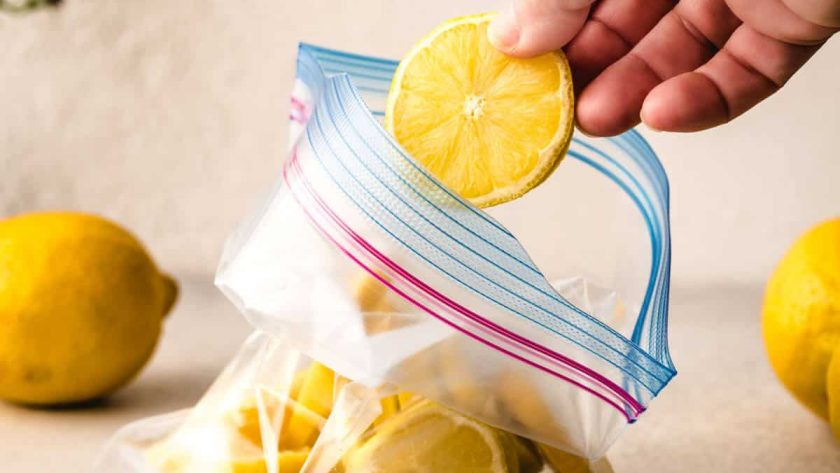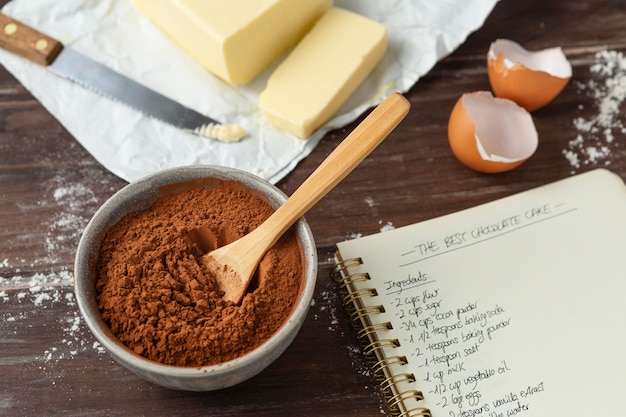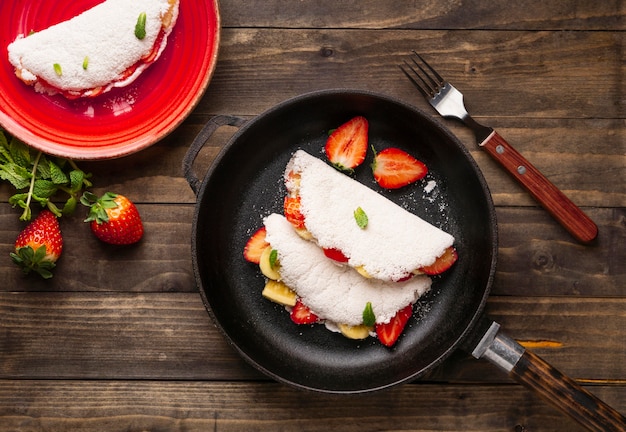How long do can you keep store lemons last fresh without losing their flavor and nutritional value?
Lemons are a versatile citrus fruit that are not only delicious, but also have a wide range of uses in the kitchen. Whether you’re using them to add a tang to your favorite dishes or as a refreshing twist to your drinks, having fresh lemons on hand is a must. But how long do lemons actually last, and how can you ensure they stay fresh for as long as possible?
When properly stored, lemons can last for a surprisingly long time. On average, fresh lemons can remain good for up to 4 weeks when stored at room temperature. However, if you want to extend their shelf life even further, refrigerating lemons is your best bet. Lemons stored in the refrigerator can last for up to 2-3 months!
So, what’s the secret to keeping your lemons fresh for as long as possible? The key is to store them properly. When storing lemons at room temperature, make sure to keep them away from direct sunlight and away from ethylene-producing fruits like bananas, as the gas emitted by these fruits can cause lemons to spoil faster. If you choose to refrigerate your lemons, storing them in a plastic bag or a zip-top bag can help prevent them from drying out.
In conclusion, knowing how long lemons last and how to keep them fresh is essential for any lemon lover. By following these simple tips, you can ensure that you always have fresh, juicy lemons at your fingertips for all your culinary endeavors. So go ahead, stock up on lemons and enjoy their vibrant flavor for weeks or even months to come!
How to Keep Lemons Fresh for a Long Time
Knowing how to properly store lemons can help you extend their shelf life and keep them fresh for a long time. Here are some tips on how to do it:
1. Store them in the refrigerator
One of the best ways to keep lemons fresh is to store them in the refrigerator. The cool temperature helps slow down the ripening process and prevent them from getting spoiled quickly. Make sure to place them in a sealed plastic bag or an airtight container to avoid moisture loss.
2. Avoid exposure to sunlight and heat
Lemons are sensitive to heat and sunlight, which can cause them to dry out and become less flavorful. Keep them away from direct sunlight and any sources of heat, such as stovetops or ovens. This will help preserve their freshness and taste.
Pro tip: If you have cut lemons, wrap them tightly in plastic wrap or put them in airtight containers before storing them in the refrigerator. This will prevent them from drying out and keep them fresh for longer.
3. Keep them away from ethylene-producing fruits
Lemons are sensitive to ethylene gas, which is produced by some fruits like apples, bananas, and avocados. Exposure to ethylene can cause lemons to spoil faster. Therefore, it’s best to store lemons separately from these ethylene-producing fruits.
Remember: Proper storage is key to keeping lemons fresh for a long time. Store them in the refrigerator, away from heat and sunlight, and separate them from ethylene-producing fruits. By following these tips, you can enjoy fresh lemons for an extended period of time.
Proper Storage
Proper storage is key to extending the lifespan of lemons and keeping them fresh for longer. Follow these tips to ensure your citrus stays in great condition:
1. Refrigeration
Lemons should be stored in the refrigerator to help slow down the ripening process and maintain their freshness. Place them in a resealable plastic bag or an airtight container to prevent them from drying out.
2. Avoid Moisture
While it’s important to keep lemons hydrated to prevent drying, excess moisture can cause them to spoil. Make sure the lemons are completely dry before refrigerating them to avoid the growth of mold or bacteria.
3. Separate from Other Fruits
Lemons release ethylene gas, which can accelerate the ripening process of other fruits. To prevent premature spoilage, store lemons separately from other fruits and vegetables.
4. Use a Fruit Bowl
If you prefer to keep lemons at room temperature, a fruit bowl can be a good option. Place the lemons in a cool area away from direct sunlight or heat sources. However, keep in mind that storing lemons at room temperature will cause them to spoil faster compared to refrigeration.
| Storage Method | Tempertaure | Relative Humidity | Expected Freshness |
|---|---|---|---|
| Refrigeration | 40°F (4°C) | 85-95% | Up to 4 weeks |
| Fruit Bowl (Room Temperature) | 50-60°F (10-15°C) | 40-60% | 1-2 weeks |
By following these storage guidelines, you can maximize the shelf life of lemons and ensure that they stay fresh and flavorful for as long as possible.
The Role of Temperature
Temperature plays a crucial role in determining the shelf life of lemons and keeping them fresh. Lemons are sensitive to extreme temperatures, both hot and cold.
When exposed to high temperatures, lemons tend to deteriorate quickly and lose their freshness. The heat causes the lemons to develop brown spots, become soft, and ultimately spoil. Therefore, it is important to store lemons in a cool place away from direct sunlight and heat sources.
On the other hand, exposing lemons to very low temperatures can also have a negative impact. Cold temperatures can cause the lemons to become dry and shriveled, leading to a loss of flavor and quality. Additionally, if lemons are stored in extremely cold conditions for a long period, they may suffer from chilling injury.
It is recommended to store lemons at a temperature range of 45°F to 55°F (7°C to 13°C). This moderate temperature helps to maintain the quality and freshness of lemons and extends their shelf life.
Moreover, fluctuations in temperature should be avoided as they can accelerate the deterioration process. Rapid changes in temperature can cause moisture to condense on the surface of the lemons, promoting the growth of mold and bacteria.
In conclusion, controlling the temperature is essential for preserving the freshness and extending the shelf life of lemons. Storing lemons in a cool and stable environment ensures that they remain in optimal condition for a longer period.
Different Storage Options
Proper storage is crucial to keep your lemons fresh for as long as possible. Here are a few different storage options to consider:
1. Refrigerator
The refrigerator is a popular choice for storing lemons because the cold temperature helps to slow down the ripening process. However, keep in mind that lemons can become dry after being stored in the refrigerator for a long time. To prevent this, place the lemons in a plastic bag or wrap them in a paper towel before storing them in the refrigerator.
2. Countertop
If you plan to use your lemons within a week, storing them on the countertop is a convenient option. Make sure to keep them away from direct sunlight, as it can cause them to spoil faster. To keep the lemons fresh for longer, you can place them in a bowl with a damp paper towel covering them.
3. Freezer
If you have excess lemons that you won’t be using in the near future, you can freeze them for later use. Start by washing and drying the lemons, then place them in a resealable plastic bag and remove as much air as possible. Frozen lemons can be grated directly into recipes, or you can thaw them and use their juice.
4. Preserved Lemons
Preserving lemons is a traditional method that allows you to enjoy the unique flavor of lemons for an extended period. To make preserved lemons, sterilize a jar and fill it with lemons and salt. Seal the jar and store it in a cool, dark place for a few weeks. The lemons will develop a soft texture and intense flavor that can be used in a variety of dishes.
Whichever storage option you choose, always inspect your lemons regularly for any signs of spoilage. Remember to store them away from strong-smelling foods to prevent the lemons from absorbing unwanted flavors. With proper storage, you can enjoy fresh and flavorful lemons for weeks!
Wrapping for Longevity
Proper wrapping techniques can help extend the lifespan of your lemons and keep them fresh for longer. Here are a few tips:
Choose the Right Wrapper
When wrapping lemons, it is essential to choose the right wrapper to provide optimal protection. A breathable wrapper such as a paper towel or a muslin cloth works best as it allows air circulation while preventing excessive moisture loss. Avoid using plastic wrap as it can trap moisture and promote the growth of mold.
Wrap Individually
Wrapping each lemon individually helps to prevent them from touching each other, which can accelerate spoilage. It also helps to contain any potential mold growth or decay to one lemon, ensuring that the rest of your lemons remain fresh.
Here is a step-by-step guide to wrapping lemons individually:
- Place a lemon in the center of a paper towel or muslin cloth.
- Wrap the lemon tightly, ensuring that no part of the fruit is exposed.
- Secure the wrapper using a rubber band or a twist tie.
Repeat these steps for each lemon you want to wrap.
Store in the Refrigerator
After wrapping your lemons, store them in the refrigerator to further extend their lifespan. The cold temperature of the refrigerator helps slow down the ripening process and inhibits the growth of bacteria and mold.
| Wrapper | Pros | Cons |
|---|---|---|
| Paper Towel | Allows air circulation Prevents excessive moisture loss | Can become damp and tear easily |
| Muslin Cloth | Breathable fabric Reusable and eco-friendly | Requires washing after use May not be readily available |
By following these wrapping tips, you can ensure that your lemons stay fresh and juicy for an extended period, allowing you to enjoy their tangy flavor in various recipes.
Working with Cut Lemons
When you cut a lemon, it’s important to know how to store it to keep it fresh and prolong its shelf life. Here are some tips for working with cut lemons:
1. Wrap it up:
After cutting a lemon, wrap it tightly in plastic wrap or aluminum foil. This will help to prevent the cut side from drying out and also prevent it from picking up odors from the fridge.
2. Store it properly:
Place the wrapped lemon in the refrigerator to keep it fresh. The cool temperature will slow down the growth of bacteria, allowing the lemon to stay fresh for longer.
3. Use it within a week:
While a wrapped lemon can last for up to a week, it’s best to use it as soon as possible for maximum flavor and juiciness.
4. Squeeze the juice:
If you have a lot of cut lemons and you’re not able to use them all, squeeze out the juice and store it in an airtight container in the refrigerator. This way, you can still enjoy the fresh lemon juice for your recipes or drinks.
By following these tips, you can make sure that your cut lemons stay fresh and ready to use whenever you need them.
Signs of Spoiled Lemons
If you’re unsure about the freshness of your lemons, there are several signs you can look for to determine if they have spoiled:
| Sign | Description |
| Mold | If you see any fuzzy green or white patches on the surface of the lemon, it’s a clear sign that it has gone bad. Mold is a common indicator of spoilage. |
| Soft or mushy texture | A healthy lemon should be firm and springy to the touch. If it feels soft or mushy, it’s likely past its prime and should be discarded. |
| Discoloration | Significant discoloration, such as dark spots or an overall brownish hue, can be a sign that the lemon is no longer fresh. Fresh lemons should have a bright, vibrant yellow color. |
| Off smell | If your lemon emits an unpleasant odor, it’s a good indication that it has spoiled. Fresh lemons should have a citrusy, refreshing scent. |
| Wrinkled skin | A wrinkled or shriveled skin can indicate that the lemon has lost its moisture and is no longer fresh. A smooth and taut skin is a sign of a healthy lemon. |
Remember, while these signs can help you determine if a lemon is spoiled, it’s always best to rely on your senses and use your judgement. If in doubt, it’s safer to discard the lemon and use a fresh one.
“FAQ:” How long do lemons last
How can one freeze whole lemons, and what benefits does freezing provide in terms of preserving lemons?
Freezing whole lemons is a simple process; it involves washing, drying, and placing them in a freezer bag. Freezing preserves lemons for later use and allows them to be grated or juiced even when out of season.
When storing lemons in the fridge, what is the recommended method, and where is the ideal place within the fridge to keep them?
Lemons can be stored in the crisper drawer of the fridge, ensuring they remain fresh and maintain their quality. Placing them in the crisper helps prevent moisture loss.
What is the significance of storing lemon slices or wedges in the crisper drawer, and how does it contribute to their longevity and freshness?
Storing lemon slices or wedges in the crisper drawer helps maintain their freshness by providing a controlled environment with optimal humidity. This method prevents the lemons from drying out.
How can one effectively store lemon halves to ensure they remain usable for an extended period, and what considerations should be taken into account?
To store lemon halves effectively, wrap them in plastic wrap or place them in an airtight container. This helps prevent them from drying out and preserves their flavor for future use.
When preparing lemon wedges for storage in the crisper, what size and shape are recommended, and how does this impact their usability in various recipes?
Lemon wedges of uniform size and shape are recommended for storage in the crisper. This ensures consistent flavor when used in recipes, offering versatility in both cooking and garnishing.
How can you store lemons in the fridge to ensure they stay fresh for an extended period, and what is the recommended method?
To store lemons in the fridge and maintain their freshness, place them in the crisper drawer. This controlled environment helps prevent moisture loss and extends their shelf life.
What is considered the best way to store lemons to ensure they last for a long time, and what factors contribute to their longevity?
The best way to store lemons for an extended period is in the crisper drawer of the fridge. Factors such as controlled humidity and temperature help keep them fresh.
How can you store your lemons properly to prevent them from going bad, and what signs indicate that lemons have gone bad?
Store lemons properly by placing them in the crisper drawer of the fridge to avoid spoilage. Signs of rotten lemons include a soft and squishy texture and a sour or unpleasant odor.
What determines how long lemons last, and what factors influence their shelf life?
The shelf life of lemons depends on factors such as storage conditions, with those stored in the crisper drawer lasting longer. Proper storage helps them remain fresh for up to a month.
Can lemons be stored in the crisper drawer of the fridge, and how does this contribute to their freshness?
Yes, lemons can be stored in the crisper drawer of the fridge. This method provides a controlled environment with optimal humidity, preventing them from drying out and maintaining freshness.
What are some ways to use lemons, and how can you incorporate them into various recipes?
Lemons can be used in numerous ways, such as adding zest to dishes, making lemon water, or using the juice in cooking and baking. They add a bright and citrusy flavor to a variety of recipes.
How can you defrost lemons at room temperature, and why would you choose this method?
To defrost lemons at room temperature, simply leave them out until they reach the desired consistency. This method is chosen when you want to use the natural thawing process without external heat.
Is it possible to freeze whole lemons, and what is the recommended way to do so for long-term storage?
Yes, you can freeze whole lemons for long-term storage. Place them in ice cube trays or a food-safe plastic bag to maintain their quality. Thaw before use.
How does storing lemons in the crisper drawer impact their shelf life, and why is it considered a suitable place for storage?
Storing lemons in the crisper drawer maintains their freshness by controlling humidity levels, preventing moisture loss, and extending their shelf life. The crisper drawer is an ideal place for this purpose.
What is the suggested way to extend the shelf life of lemons, and why is it recommended to store them in a sealed container?
To extend the shelf life of lemons, store them in a sealed container in the fridge. This method helps maintain their juiciness and prevents them from drying out, ensuring they stay fresh for a longer duration.
How long do lemons generally last when stored in the fridge, and what factors can influence their shelf life in this environment?
Lemons can typically last up to a month in the fridge. The shelf life depends on factors like the freshness of the fruit and proper storage conditions.
What is the recommended method to store lemons to ensure they stay fresh, and are there specific practices that contribute to preserving their quality?
Storing lemons in the crisper drawer of the fridge is recommended to maintain freshness. Proper ventilation and avoiding excess moisture help preserve their quality.
How can you extend the longevity of lemons, and does the shelf life vary depending on different storage methods?
The shelf life of lemons can be extended by freezing them. Properly stored, lemons can last for about a month in the fridge.
Can whole lemons be frozen, and what is the best way to freeze them while maintaining their quality?
Yes, whole lemons can be frozen. The best method is to place them in an airtight container or sealed plastic bag. They can be stored in the freezer for up to a week.
Are there alternative methods for storing lemons, such as freezing lemon rind or buying in bulk, and how do these practices impact the freshness of the fruit?
Freezing lemon rind and buying lemons in bulk are alternative methods. Freezing the rind can extend usability, and buying in bulk may require proper storage practices to maintain freshness.






